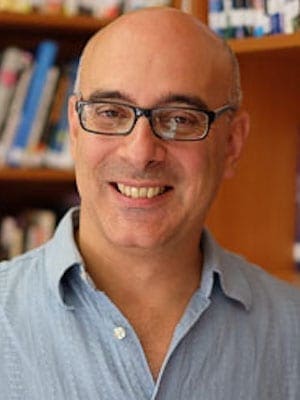Although the Caner brothers were born in Turkey and brought up as Muslims, their knowledge and understanding of Islam, as reflected in their book, Unveiling Islam, is sadly a typical example of most of the books that remain today on the Christian bookshelf on Islam. It allows itself far too many generalizations about Islam to qualify as scholarly. It ignores the inherent complexities of Islam and because of that, it is not helpful in resolving conflict.
Although the Caner brothers were born in Turkey and brought up as Muslims, their knowledge and understanding of Islam, as reflected in their book, Unveiling Islam, is sadly a typical example of most of the books that remain today on the Christian bookshelf on Islam. It allows itself far too many generalizations about Islam to qualify as scholarly. It ignores the inherent complexities of Islam and because of that, it is not helpful in resolving conflict.
Unfortunately, it seems to meet the demands of a readership that looks for quick fixes to life’s complexities. Many today, when they approach a reality that frightens them, begin by turning it into a repelling caricature, and after dehumanizing it, set about to destroy it.
The problem is, this is neither Christian nor human. Worse, it is like the fight of an over-sized giant setting out to war against a quixotic enemy. Suddenly our giant is going to wake up, exhausted and knocked out by its fight against a gigantic windmill, its enemy, the product of its own imagination.
I am not surprised that the Caner book, as you point out, was the inspiration for the fatal statement that was made at the 2002 SBC Pastors Conference.
But do those who make such statements have any idea of the impact that this statement had on us, Arab Christians, living in the Middle-Eastern Arab context?
Do they even realize that following that statement, our seminary, for three years, was not allowed to admit any students from outside Lebanon because, as a Baptist seminary, we were associated with the Baptist church in America?
I want them to know that they prevented approximately 100 students from all across the Middle East and North Africa from becoming church and community leaders that would have played a substantial role in transforming their societies. What did it cost them, on the other hand? Nothing!
My call to the Church in the West that follows such teaching is this: Where are your good readings? Have you become so blinded by the terrible events of 9/11 that you have reverted to a pre-Christian “hate your enemy” ideology? Have you cut out from them the teaching of Jesus? Is your Bible left only with the books of Joshua and Revelation?
Caner maintains that Christianity is “grafted onto the nation of Israel,” but has he cut out from his Bible these words of Jesus? “I am the Vine; you are the branches. If a man remains in me and I in him, he will bear much fruit; apart from me you can do nothing. If anyone does not remain in me, he is like a branch that is thrown away and withers; such branches are picked up, thrown into the fire and burned” (John 15.5-6).
Where are the good books? Kenneth Cragg’s Call of the Minaret; Colin Chapman’s Cross and Crescent, and Whose Promised Land; Christine Mallouhi’s Waging Peace on Islam. Will we let them go out of print simply because they do not feed our paranoia?
I think as a Church today, we must repent and convert back to Christianity!
Martin Accad is academic dean at Arab Baptist Theological Seminary in Beirut, Lebanon.

